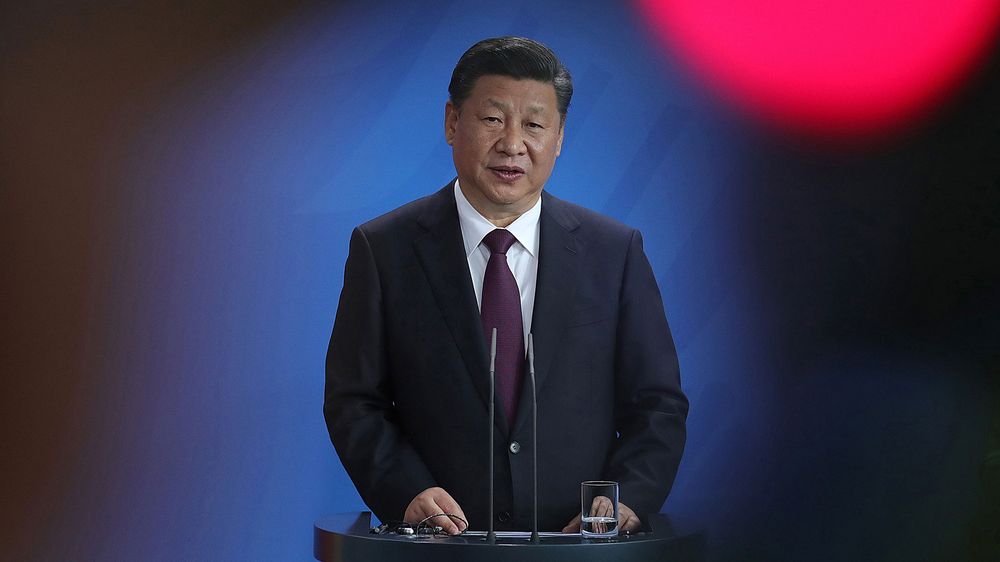Here's a Window Into How Xi Has Reshaped China

EghtesadOnline: How has President Xi Jinping reshaped China’s political discussion over the past five years? The People’s Daily provides one window.
Xi’s name, slogans and policies have come to dominate the pages of the Communist Party’s self-described mouthpiece since he took power in late 2012, according to an analysis by Qian Gang, director of the University of Hong Kong’s China Media Project. That is a pointer to the president’s clout as he approaches a leadership reshuffle later this year, and provides clues about the country’s future direction, Bloomberg reported.
Xi’s ubiquity in the People’s Daily has eclipsed his own predecessors, who also advanced their agendas through China’s state-controlled media. Each year, mentions of his name in the paper have exceeded those of former President Hu Jintao at the same point of his final term.

Such references have accelerated as Xi consolidated power. Last October at a party meeting he secured a designation as the party’s “core” leader, an elevated status that Hu did not hold. The People’s Daily mentioned Xi in 2,902 articles in the first half of this year, exceeding Hu’s entire last year. Premier Li Keqiang -- second in the party hierarchy -- was cited in 436 articles during the same period.
“We haven’t found any politician whose name has been used with an intensity even close to Xi Jinping’s,” said Qian, whose database of People’s Daily articles stretches back to 1946.
The People’s Daily has been the party’s main megaphone for proclaiming policies since the days of Mao Zedong and his Great Leap Forward and Cultural Revolution. Still, Xi’s slogans have overtaken even established terms such as “deepening reform,” an expression of commitment to the economic opening-up ushered in by Deng Xiaoping.

The “Chinese dream,” which describes the country’s ambition to reclaim past grandeur, was the No. 1 phrase in Xi’s first full year in power, according to Qian. The slogan has since given way to the more prosaic “supply-side structural reform,” a grab bag of economic policies focused on cutting excess industrial capacity in a bid to protect growth and ease debt levels.
None could compete with “One Belt, One Road” as state media promoted Xi’s signature trade-and-infrastructure initiative ahead of a May summit in Beijing. Another phrase gaining prevalence, “new governing concepts, thoughts and strategy,” bundles Xi’s various speeches and initiatives and could become a banner slogan at the upcoming party congress, Qian said.

Xi, whose own family suffered during the political purges of the Cultural Revolution, has overseen a revival of Marxist education and Mao-style political campaigns. Thus, phrases associated with China’s past tumult including “class struggle,” “anti-socialism” and “foreign influences” have made a comeback, appearing in 10,133 People’s Daily articles in the first four years under Xi. That’s up 19 percent from the previous four years.
Terms connected to efforts to liberalize the government have receded. References to “political system reform” and “intra party democracy” have dropped since Hu’s final year, with the former hitting its lowest point in 14 years in 2015. “Constitutional government,” meanwhile, has largely appeared in a negative context, as an undesirable alternative to the current system.

The shifting political debate over the past five years has prompted observers to question if Xi favored the ideological, personality-driven leadership of Mao over the pragmatic, collective approach of Deng. In the pages of the People’s Daily at least, Mao has overtaken his reformer successor.
Mao, whose record remains controversial among the party elite, has been mentioned almost 30 percent more often than Deng during Xi’s tenure. That marks a reversal from Hu’s final term. References to both party patriarchs have declined relative to another leader: Xi Jinping.


